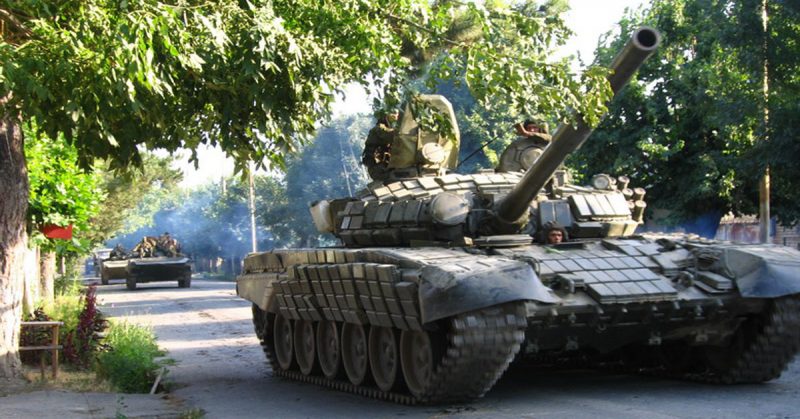As preparations for the 2008 Olympic Games reached their final stages, so did the 1992 ceasefire agreement between Georgia and South Ossetia. A series of events which began on August 1 eventually culminated into a five-day war between Georgia, Russia, South Ossetia, and Abkhazia, which has been recognized as the first European war of the 21st century. The war ran from 7-12 August 2008 and ended after Russian President, Dmitri Mendelev, announced the cessation of his “peace enforcement” campaign in Georgia.
Hostilities between South Ossetia and Georgia began in 1989, around the time of the Soviet Union’s disintegration. Georgia had recently gained recognition as an independent State and other factions in the region sought a similar fate.
Predominant among them were the regions of South Ossetia and Abkhazia in Georgia. However, the nation’s refusal to acknowledge their autonomy soon led to uprisings and a full-scale war in 1990 between South Ossetia and Georgia, leading, in 1992, to the War of Abkhazia.
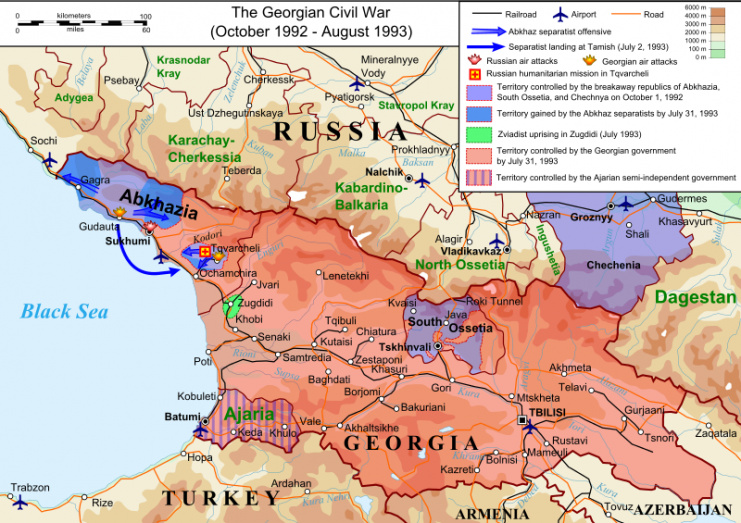
The war ended as a stalemate and saw the establishment of the Joint Control Commission for Georgian-Ossetian Conflict resolution (JCC) with equal representation from Georgia, Russia, South Ossetia, and North Ossetia.
The separatist faction of South Ossetia was thereafter acknowledged by the Georgian government. However, internationally, they were no closer to their goal of independence as they remained unrecognized under international law.
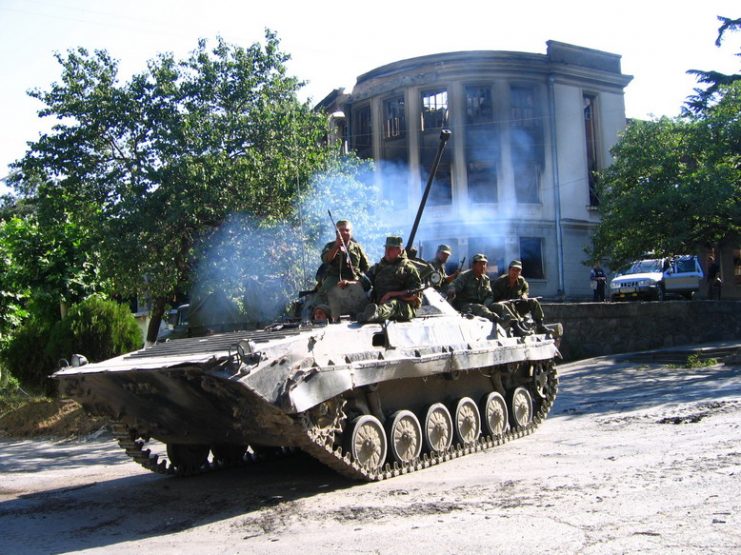
Russia was always supportive towards the people of South Ossetia, granting them citizenship after the outbreak of war in 1990. In general, their disposition towards South Ossetia had been friendly, which did nothing to improve relations between Russia and Georgia. During the war, Russia gave assistance to the South Ossetians and in the negotiations that saw the war’s end, they were a part of the peacekeeping forces sent to the region.
Ossetia had been split into northern and southern territories with the former engrained as a part of Russia while the latter became a part of the Soviet Republic of Georgia.
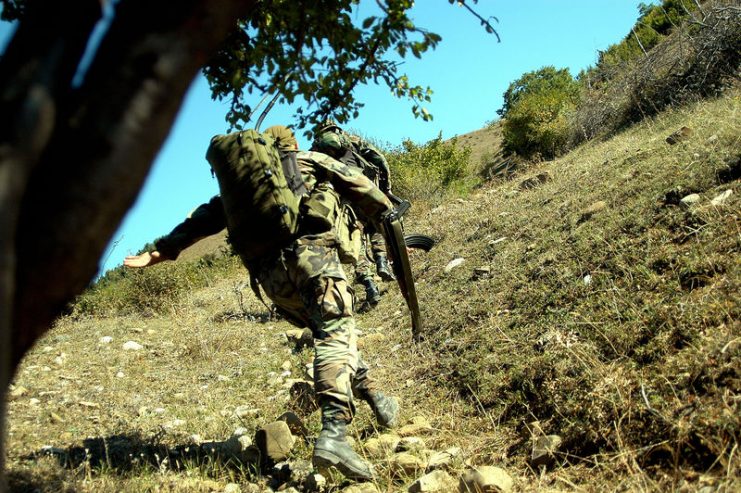
It is rather speculative to assume that the Georgians didn’t care much for the people of South Ossetia because they had always been at odds with each other. Yet the history between the two peoples suggests that this new war was a struggle for land and control over what the Georgians considered to be their territory.
In November 2006, Georgian-Ossetian relations declined drastically after the Central Election Commission of South Ossetia conducted an independence referendum in which 99% of the population voted in support of independence. Russia had been aware of this voting scheme and stated in September 2006 that it would observe the process. However, the Georgian government did not acknowledge the referendum, calling it illegal.
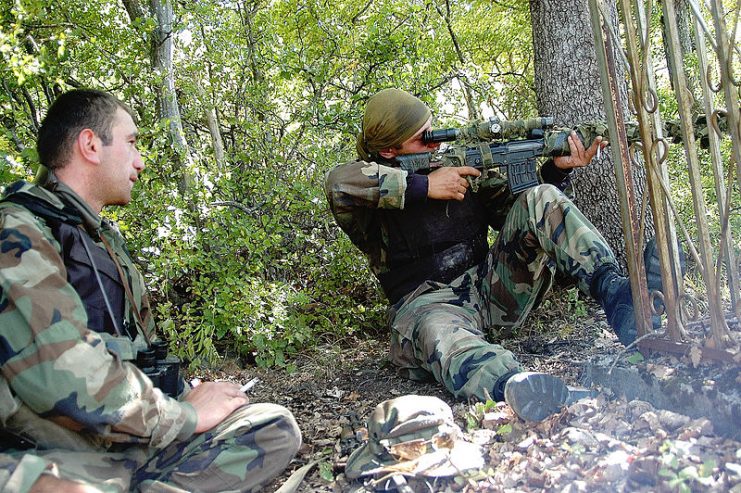
By 2008, hostilities between Georgia and South Ossetia were at an all-time high and the war which broke out in August of that year has been considered by many as unavoidable. Was that the truth? Was Russia’s invasion of Georgia backed only by their peacekeeping obligations? Or were there some sentiments involved in this act? In any case, Georgians and Russians in the Olympic Games were more than distraught at the news of a war outbreak at home.
A match was lit in the Caucasian region when a lorry transporting Georgian police officers through Tskhinvali was hit by a bomb on the morning of August 1, 2008, inflicting injuries on five of the lawmen. The Georgian militia in the area saw this as a direct attack. They responded by arranging for an assault to be carried out on South Ossetian stations, heralding a series of attacks between both parties.
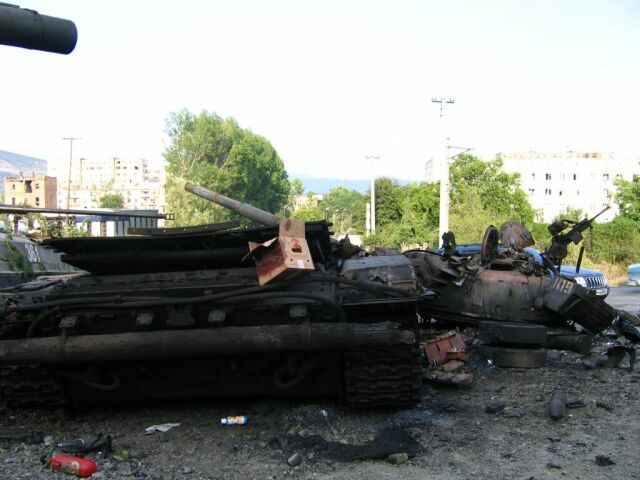
The ceasefire agreement of 1992 fell to pieces since Georgian peacekeepers, who had been stationed in the area to protect the interests of the agreement, could not help but return fire on their Ossetian attackers.
Occasional fire exchanges took place from August 2-4 and it only seemed to worsen as the days passed. Some 20,000 civilians in Tskhinvali, most of whom already possessed Russian passports, were removed from the city on the 3rd and granted refuge in Russia in anticipation of the war.
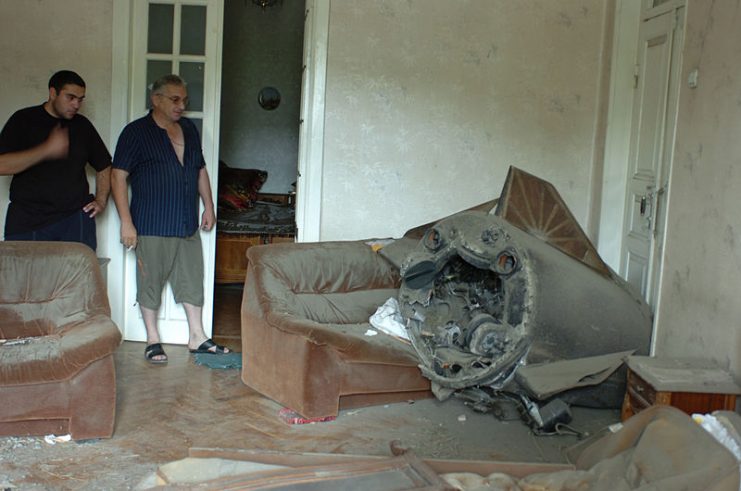
By the afternoon of August 6, areas west of Tskhinvali in Nuli, Avnevi, and Khetagurovo had become prime locations for a heavy gunfire exchange between Georgia and South Ossetia. Later that day, Georgian President, Mikheil Saakashvili, declared a ceasefire on national television that was observed for some time by the forces of South Ossetia until 10:30 PM when they resumed hostilities.
South Ossetia was not alone in this fight. On August 5, Russian ambassador, Yuri Popov, stated his country’s decision to fight against Georgia. The Russian peacekeepers stationed in Georgia were thus mobilized and given orders to stand with South Ossetia in battle.
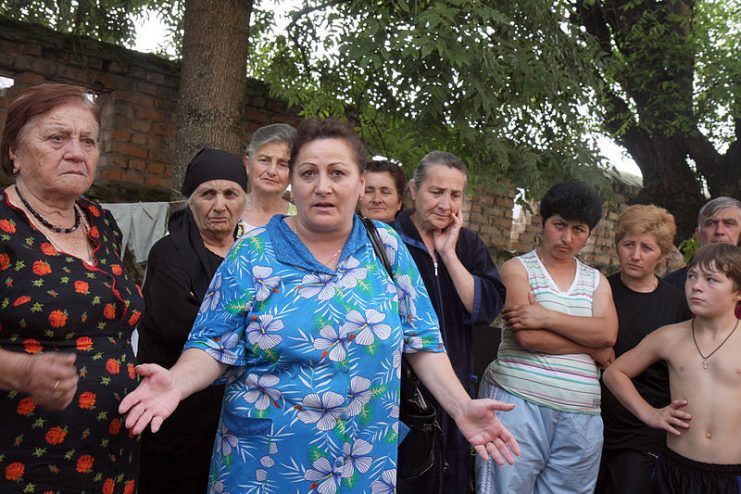
A few minutes before midnight on August 7, President Saakashvili gave the order for Georgian artillery units to let loose on South Ossetia. Russia responded by launching a full invasion of Georgia with ground and air strikes. However, prior to Saakashvili’s military order on August 7, a battalion of Russia’s North Caucasus Military District had made their way into Georgia through the Caucasus Mountains. The Georgian President claimed that his military order had been given with the intention of halting the Russian Army’s invasion.
A more compelling incident, which may also have provoked Georgian military action, took place around 2 PM in Avnevi. A checkpoint that was manned by Georgian peacekeepers was shelled by South Ossetian troops, killing two of the Georgian troops and leaving five of them seriously wounded.
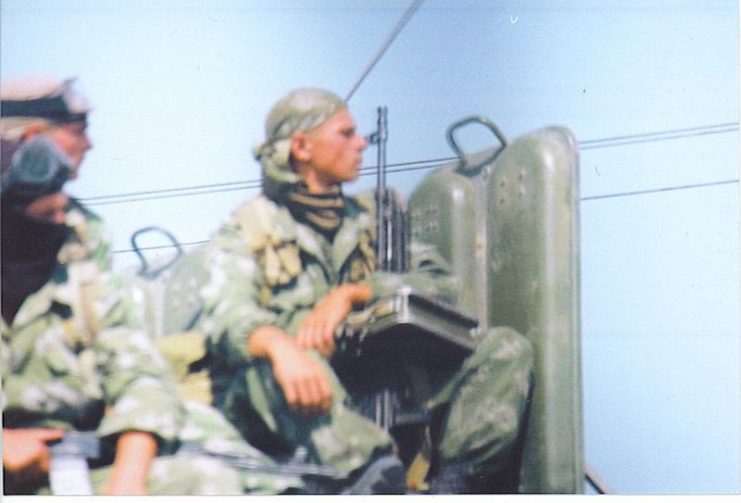
All indications seemed to point to the idea that South Ossetia provoked the military response of the Georgians. However, the artillery attack initiated by Saakashvili on Tskhinvali was deemed unlawful and disproportionate. Russia’s actions leading up to, and those made after, the war have also been frowned upon, so that Russia has received partial blame for the way things turned out.
Mendelev pulled his troops from Georgian territory on August 17 and on August 26 he issued official orders which recognized South Ossetia and Abkhazia as independent states. This was an action which was also frowned upon internationally.
According to the official report given by the EU, Georgia suffered the most losses. A total of 170 soldiers, 14 locals and 228 civilians were killed with 1,747 wounded. Russian casualties numbered a total of 67 dead and 283 injured. The casualties from South Ossetia were rounded up to 365, including both soldiers and civilians.
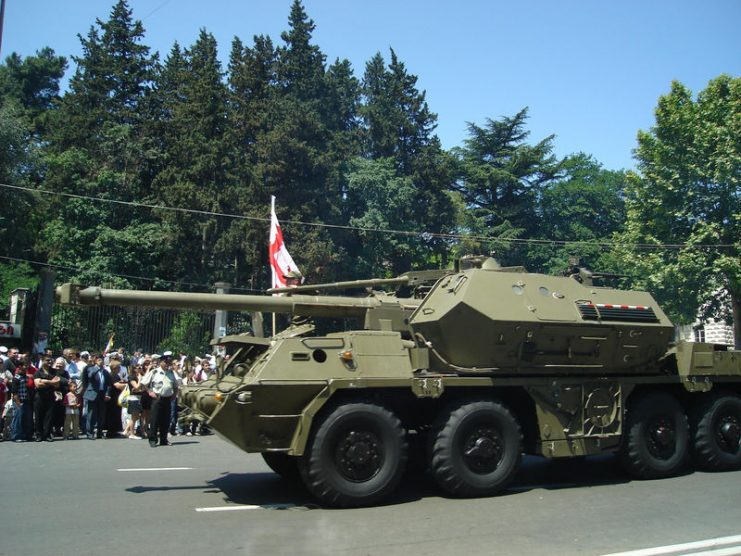
This was a victory for the Russian-Osettian forces and allies: Georgia had lost part of their territory to South Ossetia, the South Ossetians themselves had gained their independence, and Russian relations with the separatist factions were never better.
Read another story from us: Lost and Found: Russian Pilot Missing for 31 Years
Irrespective of the ongoing war, Nino Salukvadze of Georgia showed great sportsmanship when she hugged and kissed her Russian opponent, Natalia Paderina, after securing the bronze medal for her country on August 10.
When she was asked how she felt about military conditions back at home, she said simply, “we live in the 21st century after all. We shouldn’t really stoop so low to wage wars against each other.” In a previous remark, she suggested that there would be no wars if the world was to draw lessons from her conduct with Paderina.
